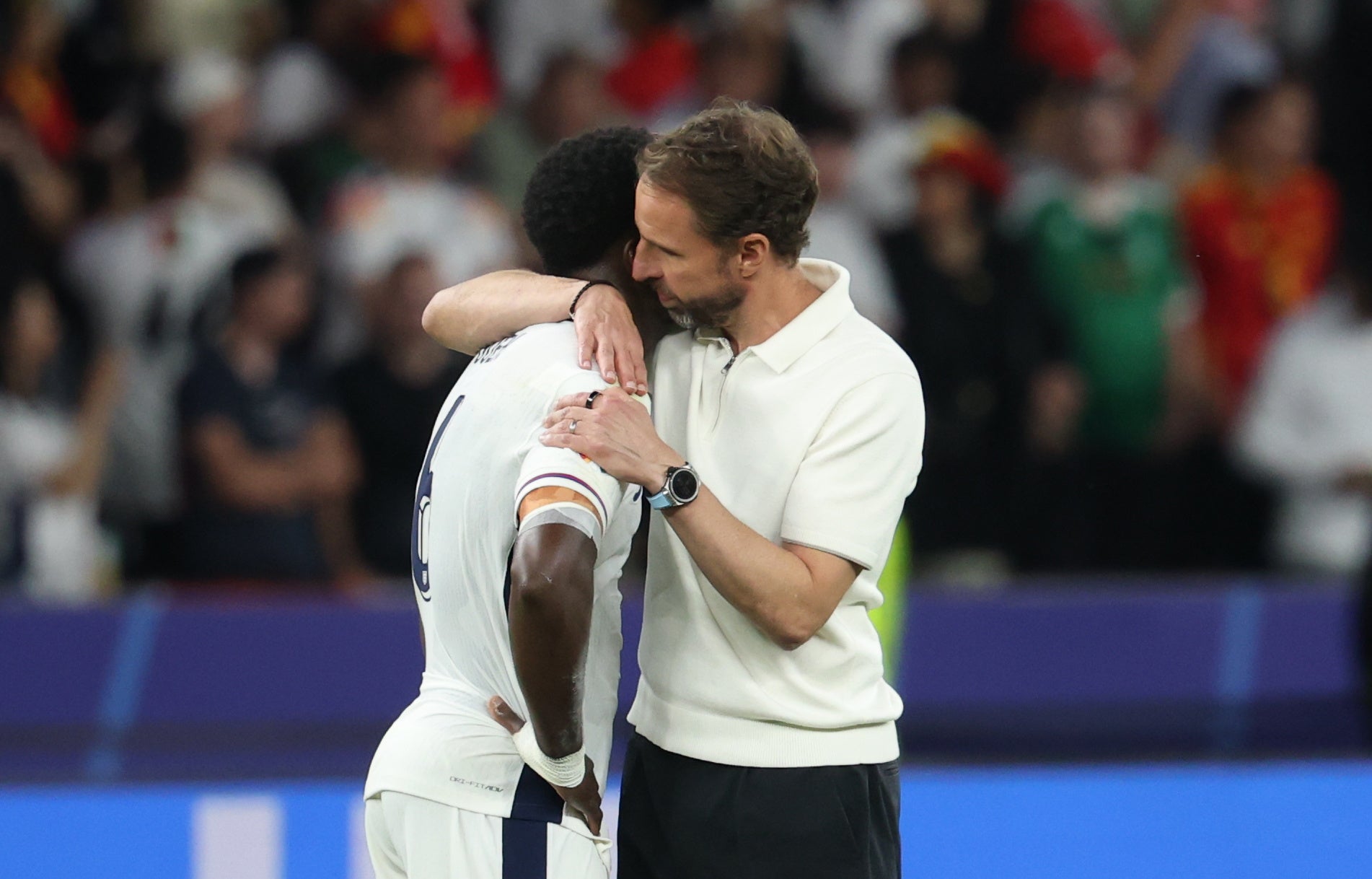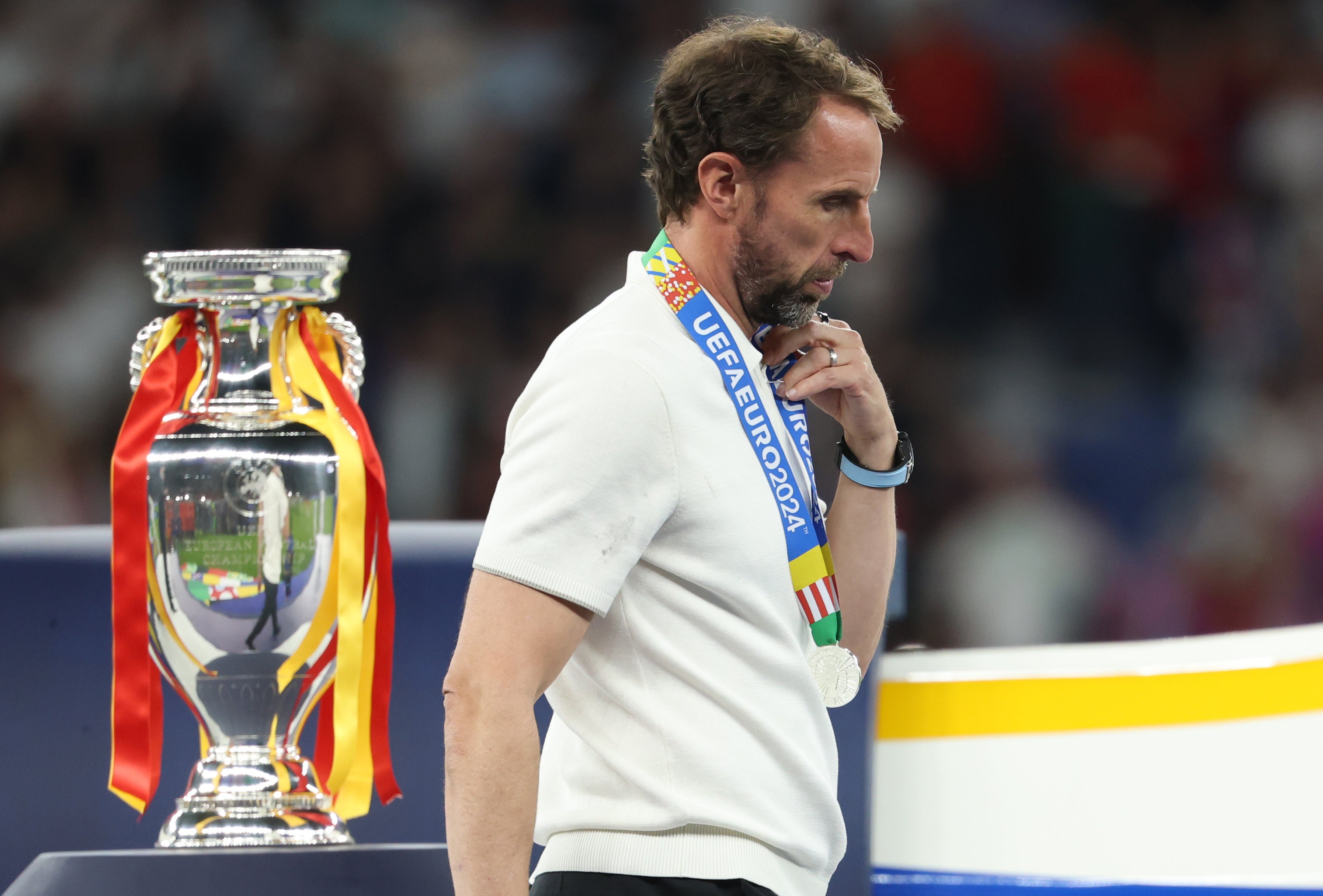Gareth Southgate was perfect for England – so can he adapt to club football?
Southgate rebuilt the England men’s team and while he will now seek a major job in club football, his true calling may be a vital role within the Football Association to continue his work

Your support helps us to tell the story
From reproductive rights to climate change to Big Tech, The Independent is on the ground when the story is developing. Whether it's investigating the financials of Elon Musk's pro-Trump PAC or producing our latest documentary, 'The A Word', which shines a light on the American women fighting for reproductive rights, we know how important it is to parse out the facts from the messaging.
At such a critical moment in US history, we need reporters on the ground. Your donation allows us to keep sending journalists to speak to both sides of the story.
The Independent is trusted by Americans across the entire political spectrum. And unlike many other quality news outlets, we choose not to lock Americans out of our reporting and analysis with paywalls. We believe quality journalism should be available to everyone, paid for by those who can afford it.
Your support makes all the difference.Gareth Southgate’s final thought was the one that probably hurt the most. “It’s the last step we haven’t been able to do,” he reflected in his final answer as England manager. He had cited the achievements, a first final on foreign soil, two in consecutive European Championships, only one defeat in 14 matches – penalties excluded – in those two tournaments, but said: “In the moment, none of the matters.”
It was a clue. Southgate was a beaten man. After eight years of dignified and devoted service, the best England manager of his lifetime – and he was born a couple of months after West Germany ejected his country from the 1970 World Cup – knew he wouldn’t join Alf Ramsey in the pantheon of winners. Perhaps someone else will: Southgate leaves a still better platform even than Ramsey, given that the managerial knight was sacked after England failed to qualify for the 1974 World Cup. The talent of the players, the youth and the strength in depth could position Southgate’s successor to win the 2026 World Cup or, more probably, Euro 2028 on home soil. Take the culture he implemented, add more attacking thrust and assurance in possession and he may seem England’s Bill Shankly, his replacement the Bob Paisley of this particular comparison.
England’s past, however, suggests they are likelier to regress and that the Southgate years may forever remain an anomaly: four consecutive tournaments when they outlasted Germany. He was an English version of Didier Deschamps or Joachim Low, just without the crowning glory of a trophy. But he won more knockout games than the managers of the previous five decades between them. In England’s century and a half of international football, no one else has been directly involved in two finals and two more semi-finals; the first as a player, the second as a manager. Southgate stands alone.

He stands down, too, when the FA and the players wanted him to stay. Some of the public did not. On Friday, Southgate noted: “We live in an angry country.” He can testify: it didn’t take much for the atmosphere around England’s most successful manager in half a century to become toxic. That Southgate offered more fundamental decency than the governments for most of his tenure, more respect for and belief in people, more willingness to see their potential and bring them together, made him the right sort of figurehead. And yet still people turned on him.
England’s football was far from scintillating for most of Euro 2024. The style of play has been a reason to doubt Southgate’s coaching prowess and to damn him with faint praise. It also prompts the question of what comes next. Some of Euro 2024’s managers have outstanding achievements at club level: Luciano Spalletti, a grievous failure with Italy, Julian Nagelsmann, who rejuvenated Germany, and Deschamps, though his Champions League final belongs in the distant past. But the tournament was won by Luis de la Fuente who, since being sacked by Alaves in 2011 after a mere four wins, has worked within the Spanish FA. Club and country are increasingly different.
There have long been hints of restlessness to Southgate; 15 years after leaving Middlesbrough, he has an itch to scratch in the club game. Whether his skills equip him to go up against Pep Guardiola and the Guardiolistas on a weekly basis remains to be seen. The sense is that he has not spent eight years of achieving with England while rebuffing offers from leading clubs. That he has admirers among Manchester United’s new regime could prove instructive, and not merely because Erik ten Hag only stayed after Ineos considered a host of other candidates during a time when Southgate was focused on England. Their need for a cultural reboot could play to his strengths. But whereas Roy Hodgson could slot back into life at mid-table clubs and Bobby Robson became first a successful export before his sentimental homecoming at Newcastle, many a manager – from Ramsey to Fabio Capello, Don Revie to Sven-Goran Eriksson – struggles to find success after England.

And yet the jobs that may fit Southgate best are arguably with England. It has been the recurring theme of his career – as a player, he never got to appear in the Champions League but reached a half-century of caps – and his life; Southgate recalled last week how he celebrated Bryan Robson’s first-minute goal against France in 1982 and David Platt’s 119th-minute winner against Belgium in the 1990 World Cup.
He has tried to define Englishness in a way that did not revolve around underachievement and missed penalties, in a manner that gained respect around the world. It is a reason why, after their profoundly silly approach to Jurgen Klopp, the US Soccer Federation should not target Southgate.
Instead, the Football Association is his own, the one that never wanted him to leave. The FA ought to approach him in the future, when the time is right. In due course, Southgate should return to England, whether as technical director, chief executive or chair. For now, he leaves as the mild-mannered revolutionary, the man who transformed the England team but who did everything except take that final step.
Join our commenting forum
Join thought-provoking conversations, follow other Independent readers and see their replies
Comments